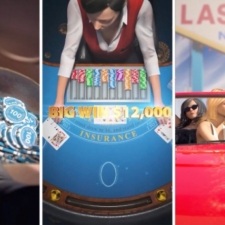After examining Meta’s ad library across Facebook, Instagram, and Messenger, 188 ads for 63 games with loot boxes were found. Shockingly, only 11% disclosed in-game purchases and merely 7% mentioned loot boxes. In the study it was found that only a single game – Elder Scrolls Online – consistently disclosed both features as required.
The study, by researcher Leon Xiao, looked at loot box advertising in popular games and their adherence to UK and EU regulations.
For TikTok’s ad library, Xiao sorted the ads with the highest number of impressions until he got 100 ads relating to games containing loot boxes. However, only 7% of those ads included the required legal mention of loot boxes. Xiao also discovered 130 ads relating to games with in-game purchases and only found nine (6.7%) properly labelled such features in their ads.
Tiny text and low resolution labels criticised
In both studies, every accurately labelled ad on TikTok originated from Electronic Arts, while major titles from Activision Blizzard, Sony, Take-Two Interactive, Warner Bros. Games, and Ubisoft failed to provide any of the required disclosures.
Despite its proper disclosure efforts, Electronic Arts did recieve criticism for small, hard-to-read text in its ad, prompting concerns about regulatory compliance.
“When the mandatory disclosures are made so poorly (such that many consumers would not in fact be able to read and understand them), it would be open to advertising and consumer protection regulators to opine that such disclosures, despite technically having been made, would nonetheless remain non-compliant with the disclosure requirements because they were made so ineffectively,” said Xiao.
“It is also relevant to consider that mobile phone screens are relatively small to begin with (which further justifies larger graphics being used). A more prominent form of disclosure would be for the PEGI loot box label and age rating information to be displayed over a black background for at least five seconds,” he added.
While UK guidelines demand disclosure of in-game purchases and loot boxes, only 4% of kids spend money on loot boxes while the European Commission’s Unfair Commercial Practices Directive continues to stress the importance of revealing randomised paid content.
Meanwhile in Australia a campaign seeks to see games featuring loot boxes carry a mandatory 18 rating, while in Finnland loot boxes were successfully classified as gambling, with the necessary legal framework around such a classification coming to bear.
However in Canda the opposite was found to be true while, most recently, in China proposed regulations could soon cause problems for hit games using the popular monetisation method.



